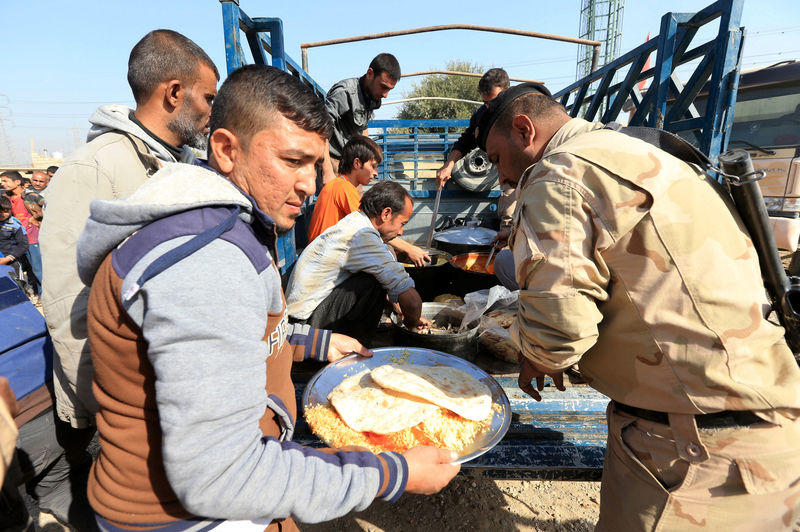By Tom Miles and Stephanie Nebehay
GENEVA (Reuters) - Islamic State fighters have executed scores more people around the northern Iraqi city of Mosul this week and are reported to be stockpiling dangerous chemicals in civilian areas, the U.N. human rights office said on Friday.
A mass grave with over 100 bodies found in the town of Hammam al-Alil was one of several Islamic State killing grounds, spokeswoman Ravina Shamdasani said. She cited testimony gleaned from sources including a man who had survived an execution of some 50 former Iraqi soldiers by playing dead.
"Clearly there are many other killing fields. We also have reports of other mass graves which we haven’t yet been able to verify,” Shamdasani told reporters, mentioning sites at Mosul airport and the village of Tal al-Thahab.
Iraqi troops had found large stockpiles of sulfur and there were credible reports that Islamic State had used "phosphor projectiles" over Qayyara, close to Mosul, Shamdasani said.
"Similar credible reports in Mosul state that they have placed sulfur pits in close proximity to civilians," she said.
The U.N.'s sources of information include people living in IS-held areas who risk their lives to speak out.
"We get so much information," Shamdasani said, without going into details. "We’ve been in Iraq a very long time.”
Shamdasani said 40 civilians were reportedly shot on Tuesday for "treason and collaboration" with Iraqi government forces, and their bodies hung from electrical poles around Mosul.
The same day a 27-year-old man was shot for using a mobile phone, Shamdasani said. Six others had been hanged on Oct. 20 for hiding SIM cards, and 20 more were reportedly shot on Wednesday for leaking information to the Iraqi security forces.
Islamic State had deployed what it calls "sons of the caliphate" wearing explosive belts in the alleys of Old Mosul, and the U.N. had unconfirmed reports that they were teenagers and young boys, Shamdasani said.
IS also announced on Nov. 6 that it had beheaded seven of its own fighters for deserting the battlefield at Kokjali, Shamdasani said.
The U.N. had also verified an IS propaganda video showing four children, purportedly including one Russian and one Uzbek, executing four people for spying.
The U.N. had information that abducted women, including from the Yazidi minority, were being "distributed" to fighters or told they would be used to accompany Islamic State convoys, Shamdasani said.

"We're talking about war crimes, crimes against humanity, even genocide," she said.